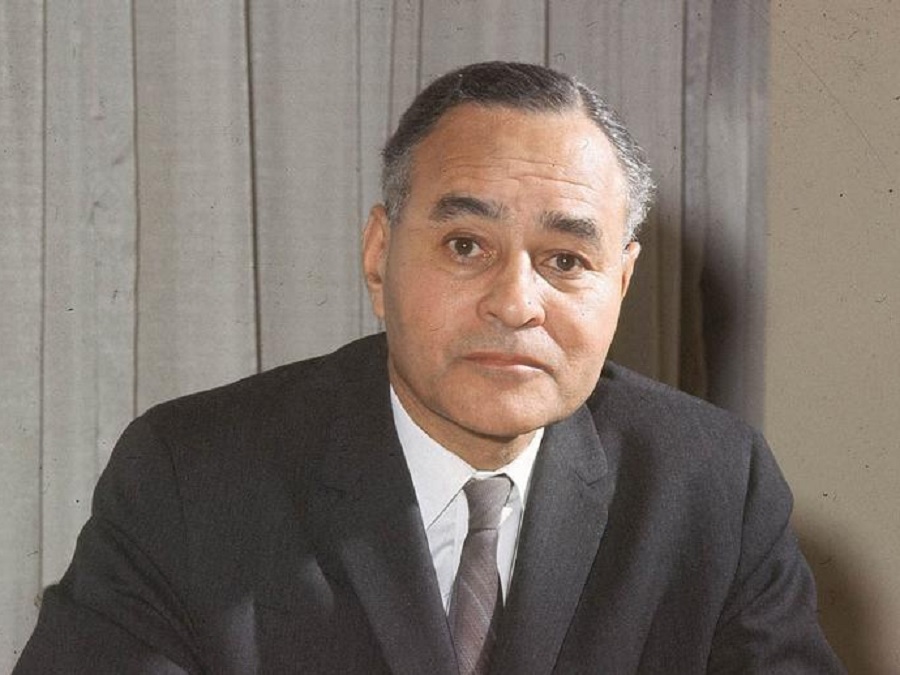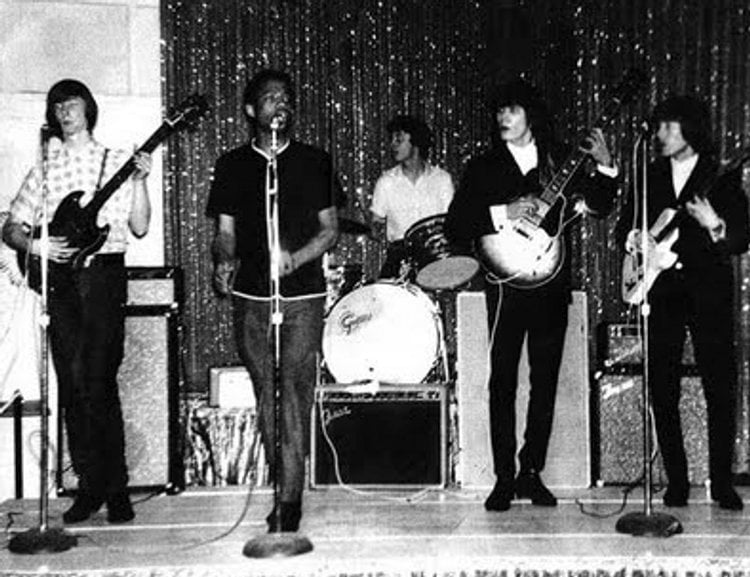You are using an out of date browser. It may not display this or other websites correctly.
You should upgrade or use an alternative browser.
You should upgrade or use an alternative browser.
Rare and very interesting photos
- Thread starter Alumni
- Start date
stupid army
What people don't realize about our military and our medical system is that both institutions always select goods and services from the cheapest and lowest bidder, not the best product.stupid army
Crazy!!
Group portrait showing the USS Maine baseball team, which won the previous year's Navy baseball championship, 1898. All but one member of the team subsequently perished when the USS Maine exploded in Havana harbor. African American pitcher William Lambert, back row, far right, was their star player. (1897)
William Lambert was from Hampton, Virginia. During the latter part of the 19th Century he served as a Fireman, Second Class aboard the USS Maine (ACR-1), the United States Navy's second commissioned battleship.
Lambert was the pitcher of the ships' baseball team and the only black player on the squad. In Florida in December 1897, the team defeated a team from the cruiser USS Marblehead, 18-3, to earn the title Navy baseball champions. Lambert, a left-hander, was described as “a master of speed, curves, and control.”
Their next game was scheduled with an all-star squad in Havana, Cuba, and the Maine arrived in Havana Harbor in January.
On February 15, 1898, Marine Corps Fifer C.H. Newton, the ship’s bugler and the ball team’s third baseman, blew taps as the Maine bobbed listlessly in Havana Harbor. Shortly afterwards, the Maine blew up, killing 261 of the crew, including William Lambert and all but the baseball team’s right fielder, John Bloomer.
Two months after the loss of the USS Maine, on April 25, 1898, saw the start of the Spanish-American War, during which the rallying cry, “Remember the Maine! To Hell with Spain!” was frequently heard.

William Lambert was from Hampton, Virginia. During the latter part of the 19th Century he served as a Fireman, Second Class aboard the USS Maine (ACR-1), the United States Navy's second commissioned battleship.
Lambert was the pitcher of the ships' baseball team and the only black player on the squad. In Florida in December 1897, the team defeated a team from the cruiser USS Marblehead, 18-3, to earn the title Navy baseball champions. Lambert, a left-hander, was described as “a master of speed, curves, and control.”
Their next game was scheduled with an all-star squad in Havana, Cuba, and the Maine arrived in Havana Harbor in January.
On February 15, 1898, Marine Corps Fifer C.H. Newton, the ship’s bugler and the ball team’s third baseman, blew taps as the Maine bobbed listlessly in Havana Harbor. Shortly afterwards, the Maine blew up, killing 261 of the crew, including William Lambert and all but the baseball team’s right fielder, John Bloomer.
Two months after the loss of the USS Maine, on April 25, 1898, saw the start of the Spanish-American War, during which the rallying cry, “Remember the Maine! To Hell with Spain!” was frequently heard.
The first five African-American servicewomen of the American Red Cross to arrive in Britain during World War II, Bristol, October 1942. They are in the UK to run the American Red Cross Club on Great George Street - a club for black servicemen only, and the first of its kind in Britain. Left to right: Mrs Sydney Taylor Brown, of Pittsburgh, Pennsylvania, Henrine Ward, of Chicago, Illinois, Carol Jarett, of Denver, Colorado, Magnolia Latimer, of Atlanta, Georgia, and Gladys Edward Martin, of Topeka, Kansas.

Ernest Jenkins receives the Silver Star from Gen. George Patton.

1944, Ernest Jenkins receives the Silver Star from Gen. George Patton. Jenkins had been driving Maj. Charles Ketterman in a Jeep when they were ambushed in the French town of Chateaudun. The two men liberated the whole town!

1944, Ernest Jenkins receives the Silver Star from Gen. George Patton. Jenkins had been driving Maj. Charles Ketterman in a Jeep when they were ambushed in the French town of Chateaudun. The two men liberated the whole town!
Wish I had one of these back in the day!
Copy one cassette to another with the Sony-WM W800, 1985

I did!! I had a tuner as well (controls and radio dial on the other side)... wowww!!!!!!!!
TLC on the set of “No Scrubs” (1999)
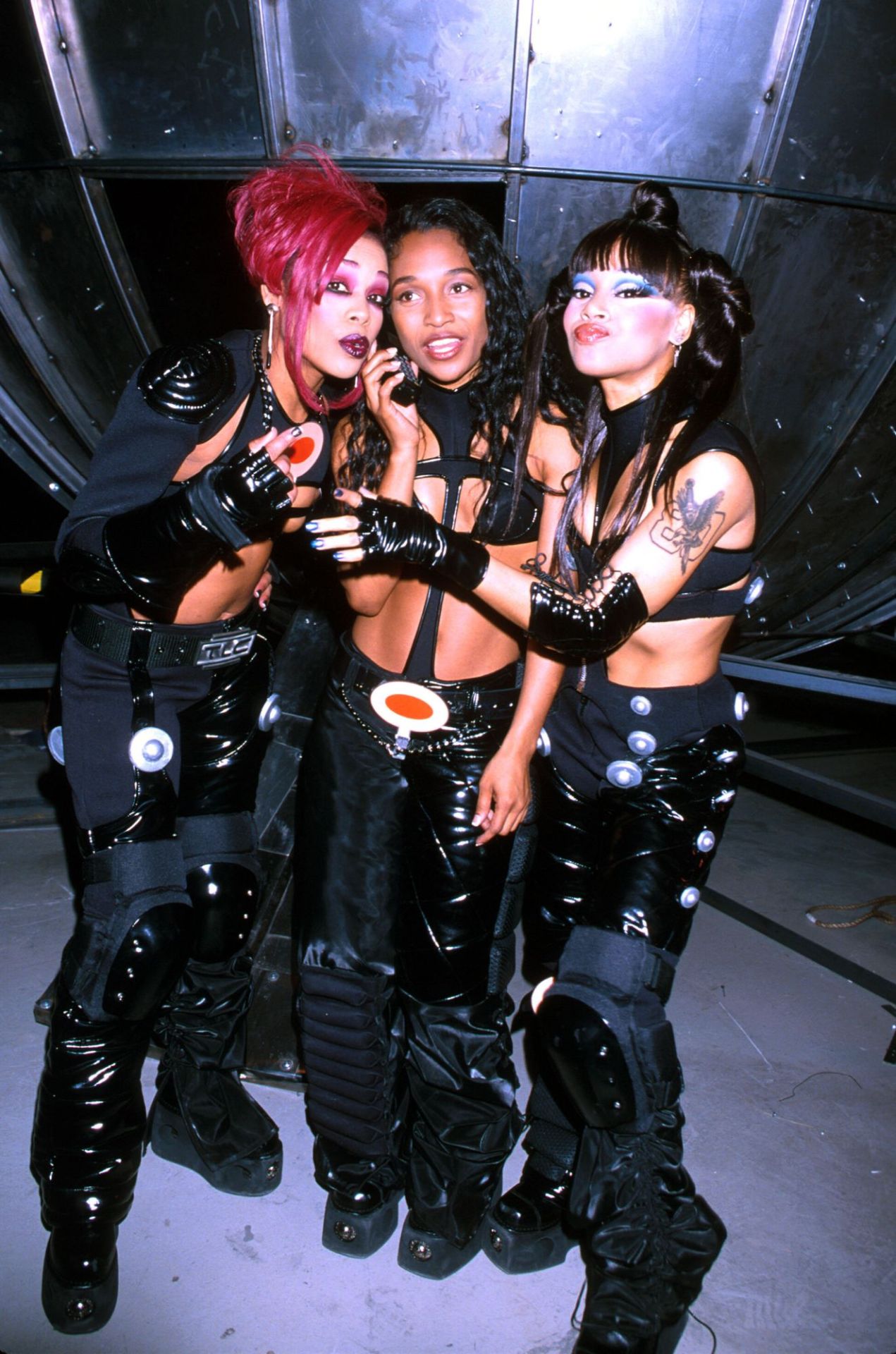

This man was running in Chucks... I rock Chucks today and although I love how they look them joints are not the most comfortable kicks... Much propsWilt Chamberlain in training, 1962

Damn, I have to take two steps for each of his one

I did!! I had a tuner as well (controls and radio dial on the other side)... wowww!!!!!!!!
I didn't know that existed before a week ago
Wilt Chamberlain in training, 1962

Damn, I have to take two steps for each of his one
Brazilian Expeditionary Force Pvt. Francisco de Paula loads a 105 mm M2A1 howitzer with a shell bearing the inscription “A cobra está fumando" (The snake is smoking) during the Italian Campaign of WWII. 1944
The Brazilian government did not want war and the Brazilian people protested against it. It seemed highly unlikely that the Brazilian Army would ever send ground troops to fight in the European campaign. A popular saying in Brazil at the time was “the snake will smoke” before the BEF will go fight. This is something like our idiom in English, “when pigs fly,” meaning its not going to happen. The soldiers of the BEF adopted this phrase, calling themselves Cobras Fumantes, the Smoking Snakes. This bit of folk wisdom is captured in their divisional insignia.

The Brazilian government did not want war and the Brazilian people protested against it. It seemed highly unlikely that the Brazilian Army would ever send ground troops to fight in the European campaign. A popular saying in Brazil at the time was “the snake will smoke” before the BEF will go fight. This is something like our idiom in English, “when pigs fly,” meaning its not going to happen. The soldiers of the BEF adopted this phrase, calling themselves Cobras Fumantes, the Smoking Snakes. This bit of folk wisdom is captured in their divisional insignia.
Phillis Wheatley

“she was called Phillis, because that was the name of the ship that brought her, and Wheatley, which was the name of the merchant who bought her. She was born in Senegal. In Boston, the slave traders put her up for sale:
-she's seven years old!
She will be a good mare!
She was felt, naked, by many hands.
At thirteen, she was already writing poems in a language that was not her own. No one believed that she was the author. At the age of twenty, Phillis was questioned by a court of eighteen enlightened men in robes and wigs.
She had to recite texts from Virgil and Milton and some messages from the Bible, and she also had to swear that the poems she had written were not plagiarized. From a chair, she gave her long examination, until the court accepted her: she was a woman, she was black, she was a slave, but she was a poet. "
Phillis Wheatley, was the first African-American writer to publish a book in the United States.

“she was called Phillis, because that was the name of the ship that brought her, and Wheatley, which was the name of the merchant who bought her. She was born in Senegal. In Boston, the slave traders put her up for sale:
-she's seven years old!
She will be a good mare!
She was felt, naked, by many hands.
At thirteen, she was already writing poems in a language that was not her own. No one believed that she was the author. At the age of twenty, Phillis was questioned by a court of eighteen enlightened men in robes and wigs.
She had to recite texts from Virgil and Milton and some messages from the Bible, and she also had to swear that the poems she had written were not plagiarized. From a chair, she gave her long examination, until the court accepted her: she was a woman, she was black, she was a slave, but she was a poet. "
Phillis Wheatley, was the first African-American writer to publish a book in the United States.
Similar threads
- Replies
- 8
- Views
- 476
- Replies
- 0
- Views
- 213
- Replies
- 14
- Views
- 1K
- Replies
- 2
- Views
- 269


